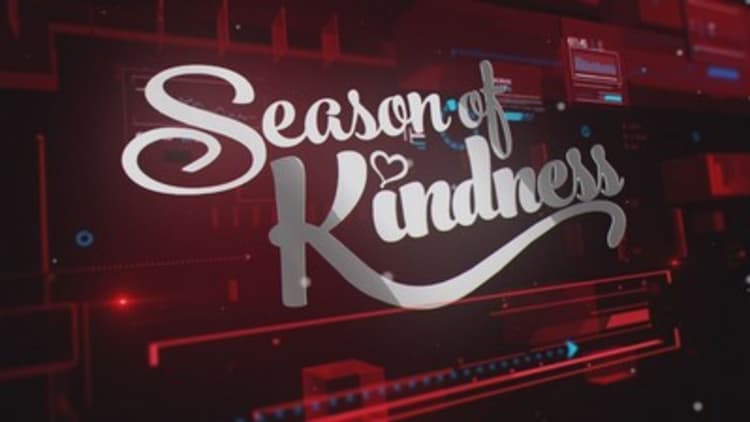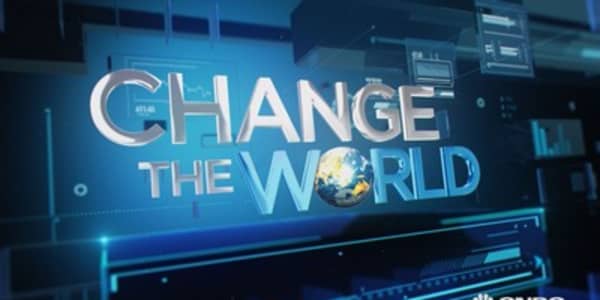
Americans love to give. In 2014, Americans gave a record $358.38 billion to charity, according to the Giving USA Foundation. A whopping 72 percent of the total came from individuals.
Some of the individuals were behind "megagifts" of $200 million to $2 billion, big checks most often associated with tech-industry tycoons trying to solve the world's biggest problems — from developing world poverty to lack of universal education — in one bank transfer of epic proportions.
But the stereotypes about charitable giving among the rich and famous can be misleading.
Consider the case of Jack Dorsey, a poster child for Silicon Valley who is the CEO of Twitter and payments company Square, which recently went public. Investors haven't been happy that Dorsey is trying to be the big man at two public companies facing intense competition in a warp-speed tech industry, but Dorsey disclosed in Square IPO filings a side of himself focused on a very big financial contribution that requires a much smaller piece of himself: Roughly 20 percent of his personal holdings in Square stock would go to the Start Small Foundation.
Start Small is a charity focused on underserved communities, and its first focus will be Ferguson, Missouri — now infamous for the racial unrest that followed the fatal shooting of Michael Brown and a long pattern of prejudicial police treatment of minorities — and is located outside Dorsey's hometown of St. Louis, Missouri.
"I'd rather have a smaller part of something big than a bigger part of something small," Dorsey said in the regulatory filing.
Celebrities often focus charity on helping the communities where they grew up, but the "personal" side of celebrity giving can mean more than just a focus on hometown issues.
Chris Klug, founder of the Chris Klug Foundation and affiliated high school and college outreach program Donor Dudes, shows just how personal nonprofit work can get: Klug is the only Olympian to ever medal after having an organ transplant.
Klug was diagnosed with a rare disease that required a liver transplant. He was on wait list for six years and had surgery 18 months before winning a bronze medal at the 2002 Salt Lake Winter Olympics.
"We started [The Chris Klug Foundation] 13 years ago to advocate for organ donation awareness and education on sharing decisions and documenting them,"Klug recently told CNBC, He said that "121,000 people are waiting for organ transplants. One donor can save eight lives and have a significant impact on 50 people."
Klug and a group of 10 supporters of his foundation recently ran the New York City Marathon and raised roughly $40,000. The charity has an operating budget of $300,000," which Klug described as small for a charity operation. But he added, "The impact we can have even if we're not here any longer is significant."
If you make money, you've gotta give some back, or you go to a bad place after you die.Kevin O'Leary"Shark Tank" celebrity investor and founder of O'Leary Financial Group
Understanding firsthand the impact charitable donations have on others is the most persuasive argument for giving.
Mitch Albom, the best-selling author of "Tuesdays with Morrie" and "The Five People You Meet in Heaven," travels to Haiti throughout the year to help run his charitable efforts there.
"Every month, I see the difference that being in a child's life — who doesn't have anybody to guide him — makes," Albom told CNBC about the orphanage his charity operates in Haiti.
"We actually have a music room now in our orphanage, where kids are playing drums and piano and guitars, and the talent is astounding. It's like we have these budding musicians I never would have known about. And of course, they wouldn't have known, if someone hadn't stepped in and given them an instrument."
Albom added, "In the end, we do really have enormous effects on each other's lives with the gifts that we're given."
For those who have the means but still have doubts, Kevin O'Leary, "Shark Tank" celebrity investor and founder of O'Leary Financial Group, known for his blunt opinions on television, provided a blunt assessment of why more people — celebrities or not — should give: "If you make money, you've gotta give some back, or you go to a bad place after you die."
— By Angela Johnson, special to CNBC.com
This story is part of NBCU's Season of Kindness. Follow the series on Facebook, Twitter and Instagram. #ShareKindness






